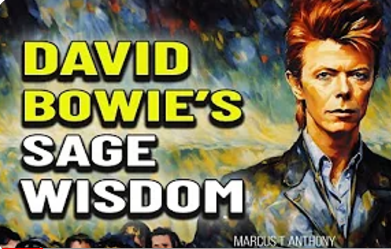Summary: The debate/drama which has arisen as a result of the recent TED saga, whereby two TEDx talks were sanctioned by TED, reveals that a strong split remains between mainstream science and skepticism on the one hand, and those with a more spiritual or holistic perspective on life on the other. The question is, how should we proceed to heal this conflict? In the remaining posts on this topic I argue that anger and projection need to be handled responsibly, because if it isn’t it will simply entrap us within the very system we seek to rise above.
Given that this subject requires a longer discussion, I am posting this as three separate blog posts. I have included sub-headings, so you can choose which sections you wish to read.
The second (“This moment in time”) is here, and the third and final (“Beyond the struggle”) is here.
Feel free to share any of this content wherever you see fit.
Marcus
Click here for an overview of the TED drama if you are not familiar with what has happened. The debate on Sheldrake’s talk is here, the debate on Hancock’s is here.
If there is one thing shown by the recent online drama which arose when TED decided to censure TEDx talks by Rupert Sheldrake and Graham Hancock, it is that there is a strong split in the modern world – and the modern mind – where two opposing camps are battling for power. On the one hand we have the conservative establishment camp of scientific materialists, and on the other we have more free thinking individuals and organisations with have a more holistic or spiritual way of looking at the world, including a rather different means of processing reality. I realise that this dichotomy is very general, but for the sake of simplicity I will call the split “the materialists versus the idealists”. Materialists tend to insist that what is measurable and observable through empirical scientific method is the basis of reality, and that everything else is either not real, or not significant. Idealists tend to have a more intuitive and spiritual take on life, and believe that modern science is only scraping the surface of life and the cosmos. They generally believe that human consciousness is an essential part of the of the universe, and that life is purposeful.
In case you are not a regular reader of this blog, I am with the latter camp (as are most people who read this blog and my books), but input is welcome from everyone if it is polite.
Are we coming closer, or moving apart?
One that interests me here is whether there is anything in the recent TED saga which suggests that things are shifting, and that the two sides are coming closer together, that they might eventually form a united worldview which will accommodate both science and spirituality.
First it has it be acknowledged that even despite its “quarantining” of the two talks, TED has permitted open discussion of the topic, albeit on a special part of its site which does not show up on its home page. TED has also made a general statement admitting it had misrepresented the talks, and wrote a very general response to the speakers’ requests for clarity (although they did not respond to Sheldrake’s post outlining supporting evidence for some of the ideas in his talk). Still, TED could have just kept the whole thing quiet and waited for it to go away.
Nonetheless, what is very notable is that no TED representative engaged in the discussion, other than one or two short comments on the first day or two. Absent also were any notable critics from the materialist camp, other than a very small number of rather fanatical skeptics who used pseudonyms to post. These people did little more than keep repeating the same mantra about “woo” and endlessly restating “Where is the evidence?” This was despite the fact that both talks were heavily philosophical, and Sheldrake’s consisted primarily of asking ten questions about the foundations of science. Probably 95 percent of the comments on the four discussion threads were dominated by idealists, many of them venting anger.
So far TED has not responded to Sheldrake’s request for an open debate on the issues he bought up in his talk. Personally, I doubt that they will. They have little to gain, and it is difficult to find scientifically literate individuals who have Sheldrake’s extensive knowledge of the subject matters he raises. Most of the criticisms it raised of Sheldrake’s talk are simply unsubstantiated, and defending them would be close to impossible. TED, and its science advisory board, risk looking rather foolish in any public debate. The support that Sheldrake and Hancock have received over this issue has probably spooked them, I suspect. Still, I would love to see such an open debate. I just don’t think it is going to happen.
So what panned out on the TED discussion boards has featured a swathe of mostly indignant idealists talking to themselves, or addressing an anonymous group of TED “science advisers” who have remained silent. Given this, the “open dialogue” about censorship on the TED site has so far been not so much a discussion as a monologue. I have the impression that TED has simply cordoned off the plebs and placed them in a virtual corner where they can shout themselves hoarse (which many did), and not bother anyone – anyone important, that is.
To put it bluntly, there is little reason to believe that TED is in any way interested in the views of the idealists. The open discussion is a chimera.
The skeptics versus the idealists
Of course it hasn’t all been dogs howling into the wind. The presence of a handful of skeptics did create some excitement on the TED boards. For those who haven’t been reading any of these discussions, I cut and paste a section here from the initial TED blog, where one skeptic was battling it out against a number of idealists. I have changed the user names, and left the typos and other errors in the posts.
Skeptic 1
The non-spreading of ideas not worth spreading is a good thing. What is censorship? Is it a bad thing? This is not a witch hunt; former pothead Graham has been very open about his crankery.
Idealist 1
Wow, if TED is truly responding to “scientist” Jerry Coyne’s blog by censoring the work of consciousness pioneers like Granham Hancock and Rupert Sheldrake, then TED is turning away from real human evolution and toward the Dark Ages. Sad. I look forward to reading TED’s responses to Graham Hancock’s posts below.
Idealist 2
At first I thought it was an isolated case of poor judgement on the part of Chris Anderson and his friends. Now reading his and other reactions to our criticism of this censorship, together with new evidence now coming to light has revealed a systemic, oppressive editorial policy driven by an elitist agenda humanity can no longer afford. TED is finished.
Skeptic 1
What is censorship? Is it a bad thing? TED has gained credibility by moving the relevant talks.
Idealist 3
How dare you? How dare you insult our intelligence like this? How can you possibly dare to be so demeaning? How can this possibly be iseen as anything other than blatant, biased, politically motivated, anti-intellectual CENSORSHIP?
What does it feel like to have no shame? Please answer, for the sake of science.
Skeptic 1
Human evolution happens through many generations. Events like this change nothing.
Idealist 4
TedTalks has lost ALL credibility for me. Censorship is crass and does nothing to move the conversation forward. Instead of fostering open debate, TedTalks has chosen the weaker route. I refuse to give any more time to sham that is TED.
Skeptic 1
Not spreading ideas not worth spreading should be commended.
Idealist 5
“Not worth spreading”
According to who? Substantiate your loose claims by answering Mr Hancock’s five simple questions. So far, the only thing that is “not worth spreading” are TED’S unsubstantiated claims & responses on this “debate”. Wake up TED!
An intelligent, structured response from you would help everyone understand your views & actions re. this matter. Childish, immature comments only serve to prove that TED is in no intellectual position to judge anyone’s work!
Wake up TED!!! This is the REAL world!!
Skeptic 1
Caps lock and exclamation points surely increase one’s credibility, which is why sane people use them all the time. I speak with great amounts of sarcasm. The childish and immature comments are the ones whining “censorship”.
Idealist 6
the irony is not lost on me you are projecting your own puerile attitude onto others instead of dealing with the valid points raised:
It can be seen that the exchange has been typified by accusation and counter-accusation, put downs and insults, with a general air of moral and intellectual superiority on both sides. I made a few posts myself, and got the standard “low IQ” insult from a skeptic or two. Of course not all the engagement between the two camps was like this, but the vast majority was.
This suggests that few people are listening to anyone else. Despite the insistence from many idealists that they are coming from a higher perception – call it spiritual, psychic, transpersonal or whatever – the fact is that many of their posts have been emotional projections from the “mind” (call it “ego” if you prefer). They were predominantly coming from the world of belief, not what I would call “deep knowing”. This is always a problem for a person who has had a first-person mystical experience, whether through introspection or drugs. As soon as the person resumes their normal state of consciousness, the mind tends to take control and they are again in the world of beliefs – and beliefs need to be defended.
Some idealists assume their position because of an intellectual or philosophical insight. This is the case, for example, where someone has examined the data from experiments into telepathy and concluded that they represent sound proof. Nonetheless, these people are still operating from belief, as their position is not based on deep knowing of the subject matter, which can only be gleaned through direct experience.
Skeptics are in the same position. I can only think of one skeptic or conservative scientist offhand who has engaged in regular meditative or spiritual practice. This precludes them from a deeper awareness of the very subject they are so passionate about. To me this seems to be akin to an expert in Indian History who has never been to India and refuses to travel there because it is just too primitive. Personally, I would listen to someone who has been to India before I took notice of someone who has simply read books and journal articles about it.
I do not consider the dismissal of spiritual and psychic experience – including the evidence gleaned in laboratories and via the experimental method – to be a matter of “rationality”, as most skeptics insist. Firstly, there is too much evidence available both scientifically and anecdotally to dismiss the concepts a priori. The most rational take is either acceptance that there is something important happening here, or that we should proceed to gather more data; or for the brave of heart, to engage the subject matter experientially through meditation or some other spiritual discipline. This would the equivalent of our India expert’s getting his head out of the books and traveling to India.
Secondly, the attitude of hardcore skepticism exists within a very clear historical context, as I discuss in one of the following blog posts on this topic. Skeptics are not free thinkers, but products of a specific and narrow culture and cognitive mindset that exists within an historical context. This in turn is influenced by psycho-spiritual evolution. As is true for all of us, much of a skeptic’s thinking is not directly in his control, but has been conditioned by his environment.
The TED drama therefore remains locked at the level of mind and within the narrow cognitive confines of this historical moment; resulting in a situation where people are defending beliefs even as they attack other people’s beliefs – while denying that their perspective is belief-based at all.
On the blogosphere
Across the blogosphere there has been plenty of discussion on the TED censorship issue. On Jerry Coyne’s blog Why Evolution is True , there has been a steady stream of self-congratulations. The censorship was a victory for rationality over the dreaded “woo”, it has been claimed. Coyne was one of the prime advocates behind the two talks being pulled down, so this is not surprising.
I wrote two posts on Coyne’s blog, pointing out how sloppy TED’s work was in misrepresenting almost everything in the two talks (nobody on the blog had seemed to notice this, or just didn’t care). I stated that in a democratic society, and in democratic institutions, we should not be stopping philosophers asking big questions about big issues. They posted the comments on the blog – which they should have, given they were firmly but politely worded. However, in response to my comments the blog moderator (Coyne, I assume) told me publicly to go away, because “…you will not convince any rational thinkers here”. This is typical of skeptics’ groups in my experience. There is simply nobody listening to anything that challenges the status quo, and they are overtly hostile to anybody with a divergent viewpoint.
There has been no shortage of discussion on blogs by idealists, either. Craig Weiler lists a whole heap of them on this blog post. Again, there has been an air of outrage in many posts and comments by idealists. The discussion remains polarised everywhere, as far as I can see.
The posts to follow
I think this is enough on the subject for the time being! In the following two posts I will detail what I consider to be the defining facets of cognitive development at this time in history and how this is affecting the drama; and then I will suggest a way out of the problem. I hope you will have realised by now that even though I am defending Sheldrake’s and Hancock’s right to be heard and am sympathetic to their ideas, I am not letting the idealists off scott free here!
Marcus
[facebook]
[twitter name=”marcustanthony1″]
[retweet]
[buzz]
[stumble]
[digg]







12 thoughts on “The way out of the TED mess, #1: The Problem”
Hi Marcus,
Another great article. Would you mind if we syndicate it over at Conscious Life News, with attribution and links back to your site?
No problem, Jonathan. You can use any of the three posts I am putting up on this topic, or even put them all together if you want. I think it is quite an important topic with implications that run much deeper than the problem we see here. so that’s why I am writing extensively on the subject. Marcus
Pingback: The way out of the TED mess #3: Beyond Struggle | MindFutres
Pingback: The way out of the TED mess, # 2: This moment in time | MindFutres
Thank you for this stunning piece. I agree that this is a vast and deep and almost infinite schism. I am thinking this TED incident is a catalytic gift to us all, that it could erupt at last in a very focused way.
Yes, I agree Celia. It is a great opportunity – if we pay attention!
Pingback: The Way Out of the TED Mess, #1: The Problem | Conscious Life News
Pingback: The Way Out of the TED Mess, # 2: This Moment In Time | Conscious Life News
Pingback: TED Makes a Decision: Not Technically Censorship (Plus a recap) | The Weiler Psi
Aloha Thanks for this wonderful essay on this issue. the fact is that no one read Rupert’s new book Science Set FRee (The Science Deiuson in Europe) how can anyone comment on it when they did nto read it? And if 20 minutes is the limit and there are no questions allowed at the TED talk then no one can answere debate. To have a debate you need people roprsent not this oversimplified brain limiting internet nonsense. rupert was very clear adn conscise in the book about where these points came from and what they imply. the worst issue is that TED did not allowm the debate posts to continue ..
Einstein and Niels Bohr argued till their death on basic issues Both thought the other esteemed expert was wrong totally wrong. They avoided each other later in their lives as they had a distaste for each others theories They were not quacks and both sides followers thought that the others were wrong….this is not new in the either or paradigm of would be science. READ Science Set Free…and see some brilliant insights.
Yes, I’ve read Science Set Free, Elan. It is a wonderful, thought-provoking book. Agree that calling Sheldrake’s talk pseudoscience is ridiculous. I suspect they never even watched the video before censoring it, as almost everything TED wrote about it in their initial statement was dead wrong. This was just the skeptics knee-jerk reaction, and not based on the actual content of the talk.
Marcus
Pingback: Dreams that come true: Dreaming of Stuart Wilde’s death | MindFutures